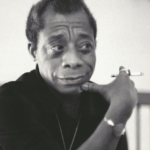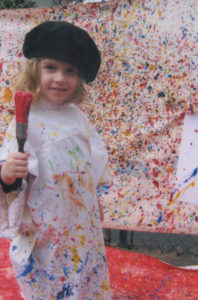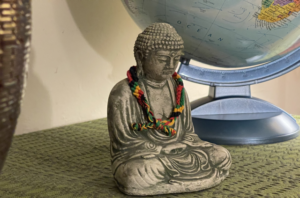Uncategorized
“…what kind of human beings we aspire to be….”
 Two years ago I read Eddie S. Glaude, Jr.’s exceptional book, Begin Again: James Baldwin’s America and Its Urgent Lessons for Our Own. Glaude delves deeply into the mind, heart and soul of Baldwin, one of the 20th Century’s great American thinkers and writers.
Two years ago I read Eddie S. Glaude, Jr.’s exceptional book, Begin Again: James Baldwin’s America and Its Urgent Lessons for Our Own. Glaude delves deeply into the mind, heart and soul of Baldwin, one of the 20th Century’s great American thinkers and writers.
Glaude’s penetrating account of Baldwin’s life and legacy inspired me to write this essay in 2021 on something I find remarkable and inspiring about James Baldwin: his undying faith in humanity despite all the tragedy and suffering he witnessed so closely and felt so deeply throughout his life. Baldwin’s faith in the potential for human renewal is reflected in the title of Glaude’s book: Begin Again. Baldwin also speaks to that faith in a phrase he once spoke in an interview….
“Trust is your relationship to the unknown.”
Trust and dialogue are mutually reinforcing: trust facilitates honest communication, and a sincere effort to engage in dialogue engenders trust.
This 3-minute video, produced in collaboration with Cirque Du Soleil, packs more deep insights and truths about the art of trust than most books. I’ve watched it a half dozen times already and I get more with each viewing.
It’s also just plain beautiful.
Here’s the script:
Alya and Gael have to trust each other. As acrobats in Cirque du Soleil, they sometimes literally put their lives in someone else’s hands.
Trust is a confusing thing. It seems so simple, but when you try and pin it down, it can be illusive. I think of the way that my body sits on a surface that’s new to me, unknown, and how my muscles remain tight, anticipating anything and I’m constantly aware of that surface. Over time, with familiarity, I can relax and start to lean back.
For many of us, that initial tension exists so much of the time. We expend so much energy watching and calculating, trying to predict, reading signals in people, ready for anything to change suddenly, preparing to be disappointed – so much energy spent.
We talk about trust as something we build, as if it’s a structure or a thing; but in that building there seems to be something about letting go.
And what it affords us is a luxury. It allows us to stop thinking, to stop worrying that someone won’t catch us if we fall, to stop constantly scanning for inconsistencies, to stop wondering how other people act when they’re not in our presence. It allows us to relax a part of our minds, so that we can focus on what’s in front of us, and that’s why it’s such a tragedy when it’s broken.
A betrayal can make you think of all the other betrayals that are waiting for you and things you haven’t thought of and people you rely on. And you can feel yourself tightening up, bracing; and in the worst cases, you might resolve to trust no one.
But that doesn’t really work.
Trust is your relationship to the unknown, what you can’t control. And you can’t control everything.
And it’s not all or none. It’s a slow and steady practice of learning about the capacity of the world. And it’s worth it to keep trying. And it’s not easy.
Alya says that trust is like a fork – not one way, but many ways: physical, emotional, and maybe something else.
I almost imagine trust as these invisible hands that we stretch out into the world, looking for something to hold onto as we walk into the unknown future.
Alya and Gael began practicing together as friends and now they are a couple. It took time.
So who do you trust and how can you grow it?
My Failed Attempt at Persuasion

My then 6-year-old granddaughter Lucia started pulling her pillow and blankets down from her bed to the floor, so she could get close enough the wall socket to plug in the iPad.
I said, you don’t need to plug it in, Lu, it has plenty of power. (It was at 87%, more than enough to watch a movie as she falls asleep, as her mom said she could do when I babysat that night.)
She insisted that the iPad needed to be charged. “That’s my opinion,” she said, as she plugged in the cord.
“It may be your opinion, Lu, but your opinion is wrong.”
“Well,” she said, snuggling into her makeshift bed on the floor, “it’s my opinion, so it’s right for me.”
And with that simple declaration, my granddaughter elucidated all we need to know about the futility of trying to change anybody’s mind about anything.
“Is meditation the key to a good life?”

Our trusty plumber Mike was at our home today to fix a toilet that wouldn’t refill. When he came into my office to get paid after the job was completed, he noticed I had sound-proofed the door.
“Yeah, I’m starting to do some video recording,” I explained, showing him my webcam and mic set-up. “So you’re gonna be a YouTube star, huh?” Mike said with a smile.
“Who knows, maybe!” I responded (with a smile :). He asked what I would be talking about in my videos. “Meditation and related topics,” I said as I handed him a check. He was intrigued.
On the way out the front door and heading down the steps, Mike turned and said: “So… is meditation the key to a good life?”
What a great question! My off-the-cuff response to Mike:
“Well, maybe not meditation per se, but yes, I’d say the state of mind that meditation can help us attain is really important, namely being calm and poised, even in stressful situations. There are certainly other ways to develop that capacity, but meditation is a really good tool.”
Mike related his own brief experience taking a few meditation classes some years prior, which he said he benefited from. He asked me to let him know when I was up and running.
(I’m working on it, and will post here when it’s ready to go.)
The “Extraordinary Significance” of Silence
This observation by Jiddu Krishnamurti about how meditation works, as related by quantum physicist David Bohm, contains a great truth about the nature of reality:
Krishnamurti has observed that the very act of meditation will, in itself, bring order to the activity of thought without the intervention of will, choice, decision, or any other action of the thinker. As such order comes, the noise and chaos which are the usual background of our consciousness die out, and the mind becomes generally silent…. In this silence, Krishnamurti says that something new and creative happens, something that cannot be conveyed in words, but that is of extraordinary significance for the whole of life.
In the face of entropy and randomness (the Second Law of Thermodynamics) life naturally tends to create order. I believe Krishnamurti’s observation about silence and meditation is integrally related to this mysterious universal phenomenon. We simply need to sit still, continually sense our relaxing body, and allow the ripples and rumblings of the ‘monkey mind’ to settle out. Of course, this quieting of the mind is rarely easy, especially at first. That’s the purpose, practice and goal of meditation. And, over time, it unfailingly works.
An Underappreciated Revelation of the Digital Age
In less than three decades, the internet and social media have become a dominant force affecting almost every sphere of our lives. Like virtually any new and ubiquitous technology or cultural phenomenon, the digital age creates both beneficial and troubling outcomes. One of the most vexing and profound impacts is the effect that our “always online” culture is having on arguably our most precious human faculty: our attention.
This is an extremely important and well-covered topic, which is rightfully seen as a serious problem. Yet, in addition to the many blessings of the internet we all enjoy, an often-overlooked gem lies at the core of its problematic side as well: